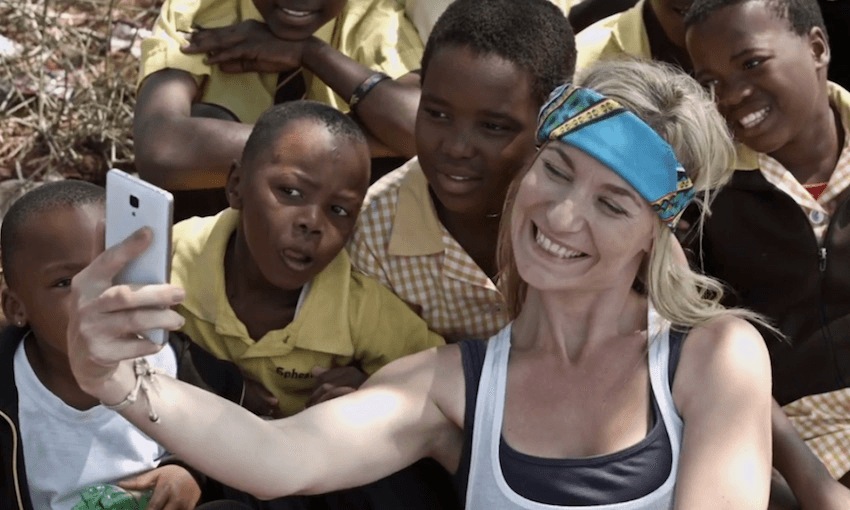Voluntourism – volunteering while abroad – would seem to be a way of making your OE that little less self-indulgent, leaving the communities you visit better than you found them. But what is intended as an act of charity can leave long-term damage, writes Hannah Reid.
If you are thinking about volunteering abroad, we need to talk. I never expected that my volunteering experiences in Cambodia would lead me to have so many contentious discussions about responsible tourism, sustainable development, commercial ethics and modern slavery. It is never easy explaining to well-meaning, generous people that their desire to help others may inadvertently cause more harm than good. But this is an important conversation to have and is a conversation in which New Zealanders have been slow to engage.
I was a university student when I travelled to Cambodia to volunteer in 2014. Like many students, I craved travel and I wanted to give back. I felt embarrassed visiting developing countries with my first world privilege and equipped with what we consider the tourist essentials – a cellphone, a nice camera and spending money. I was genuinely motivated to help others in any way that I could. Admittedly, I believed that spending my university breaks volunteering abroad would validate my interests in human rights, justice and development, applying my values by working for a non-governmental organisation and dedicating my time to social justice issues.
After some initial online research, I signed up for a two-month “Working With NGOs” volunteer programme in Cambodia. I had been assured this programme would be like an internship. I thought that several years of studying law, politics and history, combined with my experience working on campaigns, chairing the Auckland City Youth Council and giving human rights presentations in schools meant that I had skills that could be utilised to help people in Cambodia. I have since come to realise just how naïve I was and how profitable my naïvity was to voluntourism companies.
Most voluntourism programmes do not require that volunteers have any relevant qualifications or experience. A mere willingness to give back or desire to make a difference as part of your holiday, travels or gap year are the only prerequisites. These prerequisites, and the focus on the desires and wishes of the volunteers rather than the affected local communities, vested in me a quiet discomfort as I began my internship in Cambodia.
Within a few days of landing in Cambodia, I heard about fellow volunteers with no teaching experience being solely responsible for classrooms full of children. I heard about fellow volunteers visiting for just two weeks and being left to care for dozens of vulnerable children. I saw flagrant violations of the volunteer company’s rules and policies by both volunteers and placement organisations, with little awareness of or care about these policies by the volunteers. My “Working With NGOs” women’s rights internship turned out to be the NGO director asking us to give private English lessons to her staff for one hour each day, after first pleading with us to teach English at a nearby school. It only took a few days of volunteering to ignite my concern that this kind of short-term unskilled voluntourism could be causing harm.
Most of the volunteers were not teachers, social workers or nurses. Many of the volunteers had only recently completed high school. I developed a concern that the children in the orphanage and childcare placements were reduced to objects purposed to entertain the volunteers and that the volunteers in many of the other placements were pawns to attract donations. I was shocked to have been invited by a fellow volunteer to a concert being put on by the children in her orphanage placement to elicit donations. I was extremely concerned to see very young children and babies being used as props for hundreds of photographs for the social media accounts of some volunteers, including photographs of some children only partially clothed. These vulnerable and at-risk children were being treated as commodities to elicit funds for the individual placements at the expense of them being respected, protected and provided with the quality of care that all children deserve.
I left my volunteer placement after just one week. I came to realise that without speaking Khmer, without being able to commit a longer period of time and without possessing real and specific skills, ‘helping’ was a façade for the potentially adverse impacts of my presence as a volunteer. My efforts may have been contributing to the perpetuation of cycles of poverty and dependance, potentially taking a job away from a local and filling the pockets of the voluntourism businesses who stood to profit from my misplaced altruism.
Since this voluntourism experience, I have immersed myself in research and literature on responsible tourism and sustainable development. I have reflected on my other volunteering experience in Cambodia as an English teaching assistant. I have spoken with many other voluntourists about their experiences. I now warn potential volunteers about the issues surrounding voluntourism.
One of the most pervasive forms of voluntourism, orphanage tourism, is receiving increasing attention. Volunteering, visiting or donating to orphanages has been linked to the burgeoning number of orphanages and the trafficking of children into those orphanages to play with volunteers and solicit donations. The Australian Parliamentary Committee’s inquiry into the establishment of a Modern Slavery Act has recently recognised orphanage trafficking as modern slavery and is moving to regulate and outlaw orphanage tourism. My hope is that New Zealand will follow suit, particularly because several voluntourism companies are based in New Zealand and the big player International Volunteer HQ has (albeit, reluctantly) announced that it will phase out orphanage placements in the coming year.
It is encouraging to see increasing awareness of the harms of orphanage tourism. However, despite the ongoing conversation in Australia about the harms of orphanage tourism, getting louder every day, in New Zealand there has been mostly radio silence.
Many of the concerns with orphanage tourism spill over into other forms of voluntourism. Concerns over having constantly rotating unskilled tourists caring for children in orphanages spills over to rescue centers, daycare centers, kindergartens and primary schools. The same concerns over potentially depriving locals of jobs by providing free but mostly unskilled labour crosses over to most forms of voluntourism. The problem of voluntourists assuming that their economic privilege qualifies them to fly overseas to briefly undertake work that they could not do at home is omnipresent. These concerns are varied and complicated, but with orphanage tourism in the spotlight, these broader issues can no longer be ignored.
It is worth noting that there are many ways to volunteer that have a positive impact and contribute towards smart and sustainable development. Skilled medical practitioners may work for Doctors Without Borders and organisations such as Volunteer Services Abroad take on volunteers who possess specific skills needed abroad. If you are motivated to work for an NGO, make sure you take on tasks that you are qualified to do, offer your assistance for an effective length of time, and ensure that your volunteering supports local job creation rather than hampering it.
There are a myriad of ways to give back while travelling. Tourists can have both a positive impact on the communities they visit and an enriching travel experience by supporting the local economy, learning about the history, cultures and communities of the places they visit, speaking with the local people about their lives and the challenges they may face, visiting and donating to wildlife centres, animal shelters and national parks, and visiting social enterprises and NGOs committed to sustainable development.
Voluntourism companies sell tourists the opportunity to engage in what they call meaningful travel and provide assistance to communities abroad, but too often the volunteers, individual placements and voluntourism companies engage in harmful practices which have negative long-term impacts. Some voluntourism companies may be ignorant or unaware of these negative impacts, but I fear that many choose to ignore these concerns in favour of profits.
If you genuinely want to give back while you travel, do your research. Watch Tara Winkler’s TED talk, and read up on sustainable development and the communities and places you plan to visit. Think about the time, skills, qualifications and experience that you have to offer. Instead of being blinded by your own altruism, think critically about your motivations for helping, what you really have to offer and who actually stands to benefit from your tourism.
The Bulletin is The Spinoff’s acclaimed, free daily curated digest of all the most important stories from around New Zealand delivered directly to your inbox each morning.



